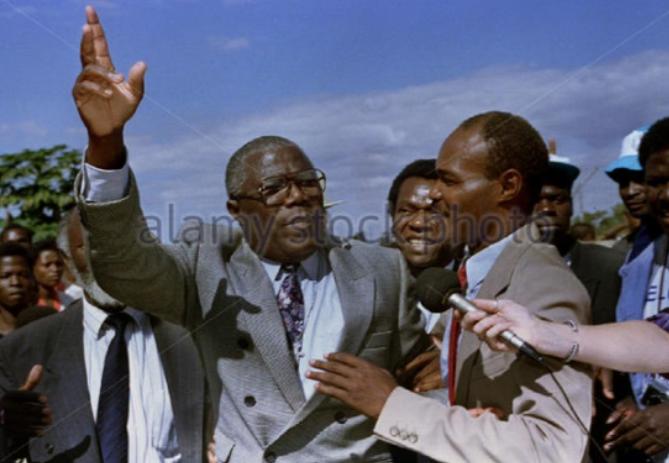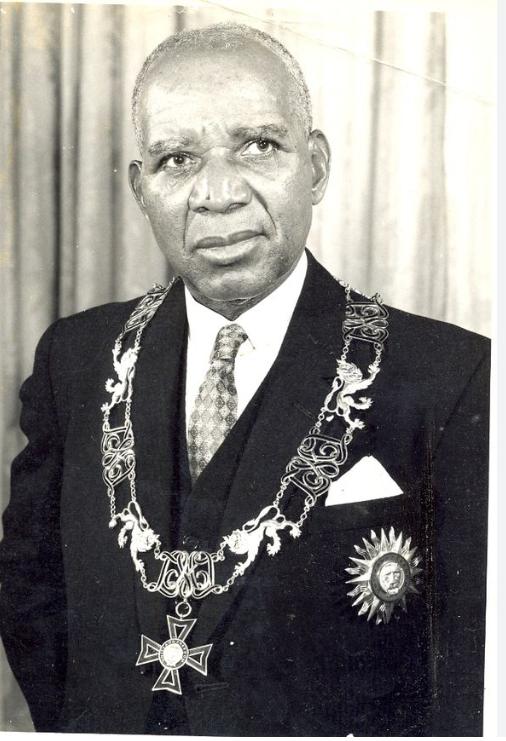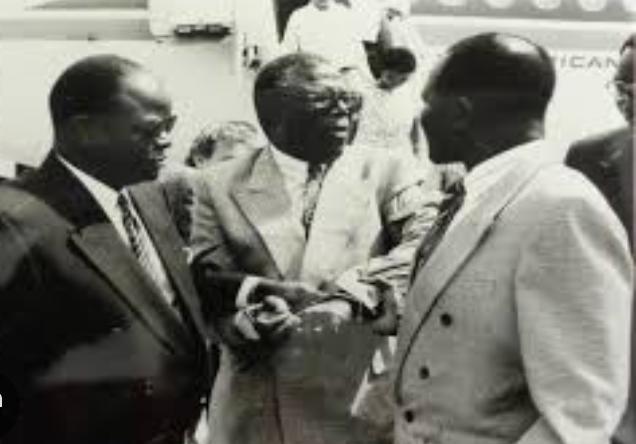
The case of the Malawian trade union leader Chakufwa Chihana, who died aged 67 after a brain tumour operation, was the catalyst that ended a government that had terrorised his country for 30 years.
In April 1992 he returned home after years of exile, to be promptly arrested, charged with sedition and jailed for two years. But he only served nine months. The US vice president, Al Gore, summoned the Malawian ambassador to the White House to protest at his detention and call for the introduction of democracy. Chihana was released on June 13 1994, the day before Malawians overwhelmingly voted for a multi-party political system.
Chihana was born in Mhuju, a village in what was then the British protectorate of Nyasaland. His father died when he was very young and he was raised by his mother, a local women’s leader. After secondary school, he worked for the colonial government and became active in the 4000-strong Commercial General Union. In 1958, he became the union’s publicity secretary and magazine editor. The following year, aged 21, he was made secretary-general. He was active in campaigns involving Malawi Railways and the Imperial Tobacco group.

It was a tumultuous time. In 1953 Nyasaland had joined Northern Rhodesia (now Zambia) and Southern Rhodesia (Zimbabwe) in the Central African Federation. In July 1958 Hastings Banda had returned from exile to lead the fight for independence. Chihana joined Banda and others in the Malawi Congress party (MCP). In 1959 Banda was imprisoned, only to be released the following year to join a constitutional conference in London. By the end of 1963 the federation had collapsed and he was prime minister of independent Malawi.
As Banda’s political clout grew, however, so did his autocratic tendencies. Chihana was dismissed from the MCP for challenging the leader’s absolute powers and championing independent trade unionism. Ordered into internal exile and brutally assaulted, he was saved by local Roman Catholic priests, and smuggled into Kenya, from where he continued to criticise Banda, while working as an adviser to the Kenya Federation of Labour.

In 1971 Banda declared himself president for life. Chihana was abducted in Nairobi and spent six years in Malawian prisons. An Amnesty International prisoner of conscience, he was released in 1977. He studied at Oslo and Dubrovnik universities and took an MA in politics at Bradford University. Back in southern Africa, he lectured at the University of Botswana. In 1985, he became a co-founder and secretary- general of the Southern Africa trade union coordinating council. And in 1992 he was awarded the Robert F Kennedy Human Rights Award for defending the country’s democracy.
Chihana’s pressure group, the Alliance for Democracy- AFORD, contested the 1994 elections in Malawi. He came third in the presidential poll but was appointed a Second Vice President. He is survived by his wife Christina, a son, Enoch Chihana who is currently the President of AFORD and two daughters.
Chakufwa Chihana, trade unionist born and politician, born March 11, 1939 and died June 12,2006.
Big question is can his son, Enoch Chihana rise to the occasion as his father who died for this country to attain democracy. So far he was demonstrated that “meana wa mkango sangakhale wa kambuku”


